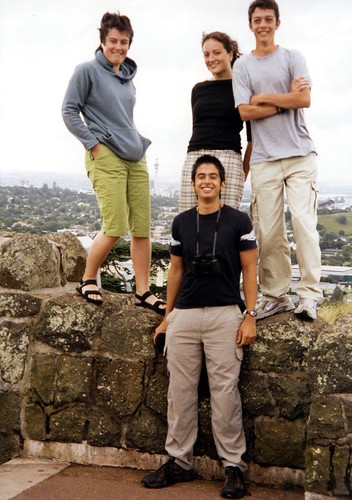A travel expert at moneysupermarket, the price comparison website that is the gateway to worldwide travel insurance has issued 10 money-saving tips aimed at anyone about to jet off around the world on a gap year.
money-saving tips aimed at anyone about to jet off around the world on a gap year.
Taking 12 months or more out to travel from country to country and continent to continent to experience many different cultures is something that appeals to a wide variety of people, some of whom have recently finished studying at college or university.
These once-in-a-lifetime trips can provide ‘gappers’ with lifelong memories, but the experience can quickly turn sour without thorough financial planning, as Bob Atkinson from moneysupermarket is quick to point out.
Atkinson said: “With more adults taking time out to travel and explore the wider world on a well-earned career break, or opting for a longer, more intrepid getaway, it’s vital that all those intending to make the trip consider all aspects of the gap year before they go.
“Planning really is the key when it comes to gap year finances and having the right products in your wallets can really save a packet, allowing you to make the most of the adventures while keeping covered. After all, no one wants to have to cut their trip short, or worse, get stranded with no money just because they didn’t plan properly.”
That planning process should revolve around finding out how much the whole expedition will cost.
“Decide on a total budget you are looking to spend,” stressed Atkinson. “Bear in mind that this will need to cover your travel and taxes as well as transfers, accommodation costs and food. If you are planning to use your overdraft as a back-up, make sure you’re aware of any charges and make sure you stay within your authorised limit. Keep track of your spending by registering for online banking, or use a banking app.”
Once the budget is set, Atkinson has some words of wisdom on how best to get more for your money in terms of exchanging currency.
He added: “Buy cash online before you go and if you need to exchange currency while away, shop around to find the best deal. Alternatively pre-paid cards are a great alternative to cash. Many offer competitive exchange rates on foreign currency and some come without the sting of withdrawal and purchase fees.”
Atkinson’s advice also extends to carrying the right credit and debit cards and getting a specific back-packer travel insurance policy, as well as monitoring passport and visa deadlines and having emergency numbers stored in a safe place. Those people planning to drive should check if additional documentation like the International Driving Permit, which costs £5.50, is required and that sufficient measures have been taken to deal with your domestic arrangements while you’re away, like paying the bills.
On the subject of keeping in contact with friends, family and loved ones, Atkinson continued: “If you’re using your phone, tablet or PC while you’re abroad, ensure you know what charges are being applied for calls, messages and data downloads, as costs increase significantly when you leave UK and European shores. Ensuring you are on a provider’s specialised overseas tariff is one way to reduce phone and data costs. Also use free internet Wi-Fi hotspots wherever possible to minimise costs.”
The issue of health care is also vitally important. Atkinson concluded: “If you are intending to travel in Europe without a European Health Insurance Card (EHIC) you could end up facing a hefty bill if you need medical care while abroad. Medical treatment in the EU and EEAs varies from country to country as well as being very different to NHS provided care in the UK.
“An EHIC is your ‘pass’ to get free or reduced cost medical treatment in any EU or EEA country. Don’t view it as a replacement for travel insurance, and be aware that any non-essential care or emergency treatments can cost extra.”
